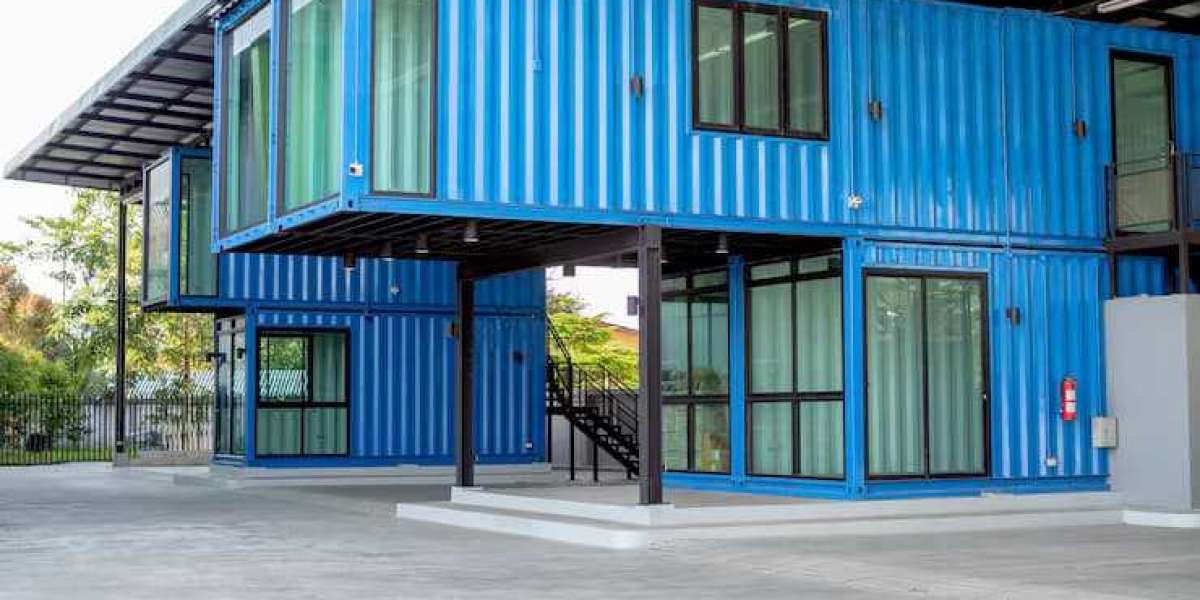As we approach 2025, the world of office spaces is evolving at an unprecedented pace. Among the noteworthy trends shaping the future of workspaces, shipping container office are gaining traction as a viable and innovative solution. This article delves into the emerging trends surrounding shipping container offices, highlighting their advantages, design innovations, sustainability practices, and the shift in workplace culture that is paving the way for their increased adoption.
The Rise of Shipping Container Offices
Shipping container offices have emerged from their initial use as temporary structures to become a permanent fixture in the realm of workspace design. This evolution is largely driven by the need for cost-effective, flexible, and sustainable office solutions. Businesses, especially startups and small enterprises, are looking for ways to minimize overhead costs while maximizing their operational efficiency. Shipping containers, once considered mere transportation vessels, are now being reimagined as functional and aesthetically pleasing offices.
The transformation of shipping containers into offices is not only practical but also highly customizable. With a variety of sizes and configurations, these containers can be modified to meet specific business needs. From open-plan layouts to private meeting rooms, the versatility of shipping containers allows businesses to create the ideal work environment. This adaptability is particularly appealing in an era where remote work and hybrid models are becoming the norm.
Sustainability and Eco-Friendliness
Sustainability is no longer just a buzzword; it is a vital consideration for businesses aiming to reduce their carbon footprint. Shipping container offices align perfectly with eco-friendly practices, making them an attractive option for environmentally conscious companies. Repurposing containers that might otherwise end up in landfills is a significant step toward sustainable building practices.
Furthermore, many shipping container office designs incorporate green technologies such as solar panels, rainwater harvesting systems, and energy-efficient insulation materials. These features not only reduce energy consumption but also lower operational costs in the long run. As businesses increasingly prioritize sustainable practices, the demand for eco-friendly office solutions like shipping containers will continue to grow.
Innovative Design Trends
The design of shipping container offices is evolving, with architects and designers pushing the boundaries of creativity to transform these industrial boxes into stunning workspaces. One prominent trend is the integration of biophilic design principles, which emphasize the connection between nature and the built environment. This approach involves incorporating natural elements such as plants, natural light, and open spaces into the design, fostering a more inviting and productive atmosphere.
Another exciting trend is the use of modular designs, allowing businesses to expand or reconfigure their office space as needed. Modular shipping container offices can be stacked or arranged in various configurations, providing endless possibilities for customization. This trend not only enhances practicality but also allows for unique architectural expressions that can reflect a company’s brand identity.
In addition, the use of vibrant colors and modern materials in the internal and external finishes of shipping container offices is becoming more prevalent. This shift towards bold aesthetics aims to create engaging and stimulating work environments that attract top talent and foster creativity. Employers understand that an inspiring workspace can significantly impact employee morale and productivity.
Adaptation to Remote and Hybrid Work Models
The COVID-19 pandemic has accelerated the shift toward remote and hybrid work models, prompting businesses to rethink their office spaces. Shipping container offices offer an ideal solution for companies looking to create flexible work environments that can adapt to changing needs. These structures can be easily relocated, allowing businesses to establish temporary offices in various locations or expand their operations without the constraints of traditional office leases.
Moreover, shipping container offices can facilitate collaboration and communication among remote teams. By creating designated spaces for meetings, brainstorming sessions, and social interactions, businesses can foster a sense of community and teamwork, even in a hybrid work setting. The ability to design spaces that promote interaction while also accommodating individual work needs is a significant advantage of shipping container offices.
Cost-Effectiveness and Speed of Construction
One of the most compelling reasons businesses are gravitating towards shipping container offices is their cost-effectiveness. Compared to traditional office buildings, shipping container conversions can be significantly more affordable. The procurement of used containers is often less expensive than purchasing land and constructing a building from scratch. Additionally, the time required for construction is drastically reduced, as shipping containers can be modified and delivered to the desired location within a matter of weeks.
This speed of construction is particularly advantageous for businesses facing tight deadlines or those that require rapid deployment of office spaces. Companies can establish their operations quickly, allowing them to respond to market demands and growth opportunities with agility. As the business landscape continues to evolve, the ability to adapt and scale operations efficiently will be crucial for success.
Future Implications and Market Growth
Looking ahead, the shipping container office trend is expected to gain momentum as more businesses recognize the myriad benefits these structures offer. The increasing focus on sustainability, coupled with the need for flexible and cost-effective office solutions, will drive the demand for shipping container conversions. As more architects and designers explore innovative design possibilities, the aesthetic appeal of shipping container offices will continue to improve, attracting a broader range of businesses.
Moreover, as urban areas become more congested and real estate prices soar, shipping container offices provide a practical alternative for companies seeking to establish a presence in prime locations without incurring exorbitant costs. This shift could lead to the development of shipping container office parks, fostering a sense of community among businesses and promoting collaboration and networking opportunities.
Conclusion
In conclusion, the future of workspaces is undeniably intertwined with the rise of shipping container offices. As we move towards 2025, the trends highlighted in this article—sustainability, innovative design, adaptability to remote work, cost-effectiveness, and market growth—will shape the landscape of office spaces for years to come. Businesses that embrace these trends will not only enhance their operational efficiency but also create environments that foster creativity and collaboration.
For those considering a shipping container office solution, Halletts Spaces Ltd is poised to help you bring your vision to life. With expert design and customization services, they can transform your workspace into a functional and inspiring environment that meets the demands of the modern workforce. Contact them today to explore how shipping container offices can revolutionize your business operations!







